- All
- Computing Centres
- Consortia & Associations
- Open Platforms
- Research Infrastructures
- Scientific Information Operators

Committee for Open Science (CoSO)
Committee for Open Science (CoSO)
The Committee for Open Science offers orientations and processes open science questions, boosts and guides actions in the matter of open science, and facilitates the expression and reporting of ideas, the commitment and contributions to work groups.
The CCSD takes part in the “Publications” college, as well as several work groups.
Read more
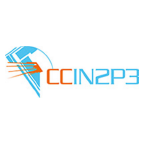
IN2P3 Computing Centre
IN2P3 Computing Centre
IN2P3’s Computing Centre (or CC-IN2P3) is a CNRS support and research unit linked to IN2P3, the institute that pursues and coordinates research on particle physics, nuclear physics and astroparticle physics.
A national research infrastructure, the CC-IN2P3 designs and operates an array of services, especially a mass storage system and mass data resources.
The CC-IN2P3 has two computer rooms (each with a surface area of 850 m²) with several thousand servers and libraries enabling the storage of nearly 340 petabytes of data on magnetic tapes.
CCSD servers and data are hosted by CC-INP3.
Read more
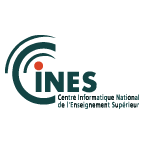
CINES
CINES
CINES (National Computing Center for Higher Education) is a French public institution, located in Montpellier (south of France) and supervised by the French ministry for Higher Education and Research.
CINES offers remarkable services to the scientific community through three national strategic missions: high performance computing, long term digital preservation, hosting of national computer platforms.
The CCSD has been in a partnership with the CINES for the long-term preservation of documents (pdf files) since 2009.
Read more
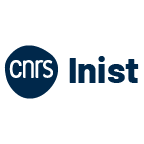
INIST
INIST
The Institute for scientific and technical information (INIST) is a research support unit of the CNRS. It aims to support access to scientific information, to enhance the research data, and to participate in data mining of scientific texts. It offers a variety of services, such as training, translation and monitoring services.
The CCSD-INIST partnership is multifaceted: participation in the moderation of HAL deposits since 2015, co-production of video tutorials, Conditor project, CorHAL project.
Read more
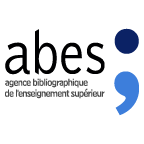
ABES
ABES
The Bibliographic agency for higher education (ABES) provides higher education and research establishments with a set of tools and services dedicated to the reporting and administration of the documentary resources available in their libraries.
The CCSD partners with the ABES for the dissemination of theses on the dedicated open archive, TEL. The ABES imports theses via the STAR application since 2009, if the defending university has chosen TEL as its full-text distribution service.
In addition, the CCSD and the ABES work together to improve identifiers alignment (idHAL, idRef, ORCID, RNSR).
Read more
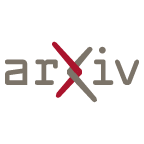
arXiv
arXiv
Created in 1991, arXiv is the first preprint server for the communities of physics researchers. It has gradually expanded to other scientific fields such as mathematics, computer science and quantitative biology.
It has since become a reference archive for the dissemination of the work of researchers in these desciplines.
HAL was developed by its founders on the model of arXiv. Since 2002, a CCSD-Cornell University agreement has enabled the transfer of a HAL deposit to arXiv for any researcher in the disciplines covered by arXiv.
Read more

User club CasuHAL
User club CasuHAL
Created in 2016, Casuhal is an association gathering HAL users, mainly advanced users such as portal administrators, collection managers and structure referents. The purpose of the association is to:
- promote the exchange of information between institutions that use HAL through the sharing of information, documentation and resources of members;
- support requests for development that meet the needs of its members in particular.
The CCSD asks Casuhal members to participate in the working groups it leads.
Read more
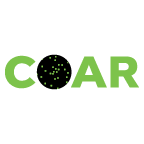
COAR (Confederation of Open Access Repositories)
COAR (Confederation of Open Access Repositories)
Created in 2009, COAR is an international association that brings together 151 members: research organisations, universities, libraries and funding agencies from around the world. It aims to create an international archive network, to align policies and best practices so as to enhane the visibility of research works.
The CCSD is a member of COAR; in 2019, it organized the association’s annual congress and assembly. The CCSD and COAR are partners for the Directory of Open Access Preprint Directory.
N. Fargier, the CCSD Director, is member of the executive board (2025-2028).
Read more
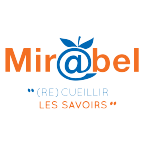
Mir@bel
Mir@bel
Mir@bel is a database of scholarly journals created in 2009.
It produces a referencing service that facilitates access to journals by locating the online content of more than 10,000 journals. It is built on a network of almost 80 institutions.
The CCSD is a partner of Mir@bel for the referencing of Episciences journals.
Read more
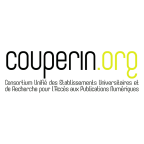
Couperin
Couperin
Couperin (United consortium of higher education and research establishments for access to digital publications) is a consortium serving as a negociation network and an expert in electronic library resources of higher education and research in France.
The CCSD takes part in the Open Science work group (GTSO), as a member of the “Open Archives” subgroup (GTAO): the group works on technical specifications and recommandations for the proper functioning of an open archive. It also works on open archive metrics, in collaboration with the team ezPARSE/ezMESURE, in order to harmonise and offer means of comparison.
Read more
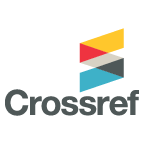
Crossref
Crossref
Crossref is a not-for-profit membership organization that exists to make scholarly communications better. They rally the community; tag and share metadata; run an open infrastructure; and make tools and services—all to help put scholarly content in context.
CCSD is member of CrossRef to assign DOIs to articles published on the Episciences platform.
Read more

Huma-Num
Huma-Num
Huma-Num aims at supporting research communities by providing services, assessment and tools on digital research data. To perform its missions, the TGIR Huma-Num bases its activities on a innovative form of organization that combines human (collective consultation through Huma-Num’s consortia, which are groups of researchers and engineers, funded by Huma-Num, working on common areas of interest) and technological resources (sustainable digital services) on a national and European scale.
Huma-Num provides Isidore, a search engine for HSS resources and Nakala, a data repository.
Several projects have associated the CCSD and Huma-Num: Isidore, MediHAL and, more recently, the POC of the European project WP6 of EOSC-Pillar.
Read more
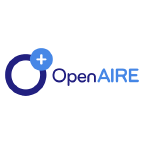
OpenAIRE (Open Access Infrastructure for Research in Europe)
OpenAIRE (Open Access Infrastructure for Research in Europe)
OpenAIRE is a European project supporting Open Science.
On the one hand OpenAIRE is a network of dedicated Open Science experts promoting and providing training on Open Science. On the other hand OpenAIRE is a technical infrastructure harvesting research output from connected data providers; as such, it harvests HAL as a whole.
OpenAIRE aims to establish an open and sustainable scholarly communication infrastructure responsible for the overall management, analysis, manipulation, provision, monitoring and cross-linking of all research outcomes.
The CCSD partners up with openAIRE through several work groups.
Read more

OpenEdition
OpenEdition
OpenEdition is a comprehensive digital infrastructure for academic communication in the humanities and social sciences. It brings together four complementary platforms focused respectively on:
- journals – OpenEdition Journals,
- book series – OpenEdition Books,
- research blogs – Hypotheses, and
- academic events – Calenda.
The CCSD and OpenEdition are partners for Equipex projects, HALiance and Commons.
Read more
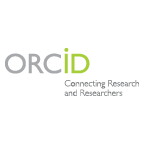
ORCID
ORCID
HAL is referenced by ORCID as a database that researchers can use to import their works: researchers can complete their ORCID record with their HAL deposits in just one click.
The setting up of this feature in HAL is part of the membership of the CNRS to ORCID. ORCID is a non profit organization whose business model is based on free access for researchers, and on membership for organizations. This provides them with a set of tools and services based on ORCID data and APIs.
Joining a consortium is a way for organizations to benefit from preferential membership rates.
The creation of the “ORCID France” consortium in november 2019 is one of the actions defined in the National Plan for Open Science (July 2018): be part of a sustainable, European and international dynamic (axis 3).
Created in November 2019, the ORCID France consortium federates the membership of institutions at a national lovel, and aims to promote the adoption of the ORCID identifier by researcheers, in order to consolidate their digital identity and the visibility of their work.
It currently has 35 members; the CCSD is a member of the ORCID France consortium governance, as an observer.
Read more about the consortium ORCID France
Read more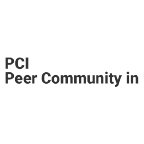
Peer Community In (PCI)
Peer Community In (PCI)
PCI is a non-profit scientific organization that aims to create thematic communities of researchers reviewing and recommending, for free, articles posted on preprint servers and other open-access repositories. These thematic communities are entitled Peer Community in X, e.g. Peer Community in Evolutionary Biology, and PCI Ecology.
The CCSD and PCI are associated for the Halowin project.
Read more

RePEc (Research Papers in Economics)
RePEc (Research Papers in Economics)
RePEc is a collaborative platform which aims to enhance the diffusion of research in economics and related disciplines. At the core of the project is a bibliographic database that has become a reference in this discipline. RePEc is supplied and maintened by volunteers from over 100 countries.
The CCSD has been supplying RePEc with data since 2007: HAL metadata in economics feed the base and supplement 14 series created by French laboratories and institutions.
Read more
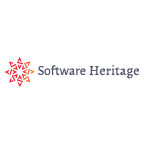
Software Heritage
Software Heritage
Created by Inria in 2015, Software Heritage aims to collect, preserve and share all softwares publicly available in source code form, with the objective of bulding an common and shared infrastructure at the service of industry, research, culture and society as a whole.
The opening of HAL repository to softwares is the result of a CCSD-Inria-SWH partnership. As of 2018, HAL and Software Heritage have been interconnected: when the researchers deposits the source code of his software in HAL, it is automatically transferred to Software Heritage; the HAL deposit is then updated with the archive identifier (SWHid).
Read more

URFIST
URFIST
The role of the URFIST (Regional units for the training in technical and scientific information) is to train university users in the tools, practices and developments of scientific information.
The CCSD is associated with the regional URFIST for the organisation of training courses for the users of HAL and SciencesConf platforms. The director of the CCSD is a member of the URFIST Lyon orientation council.
Read more